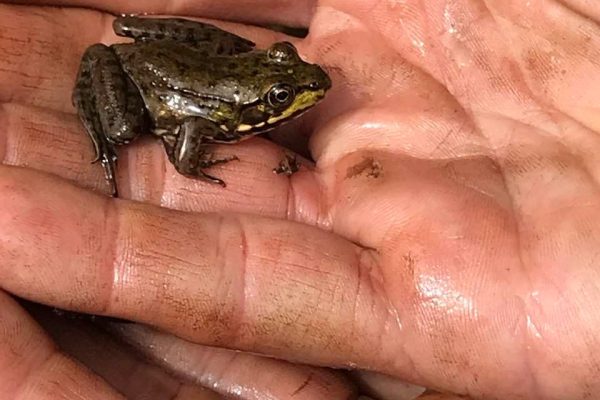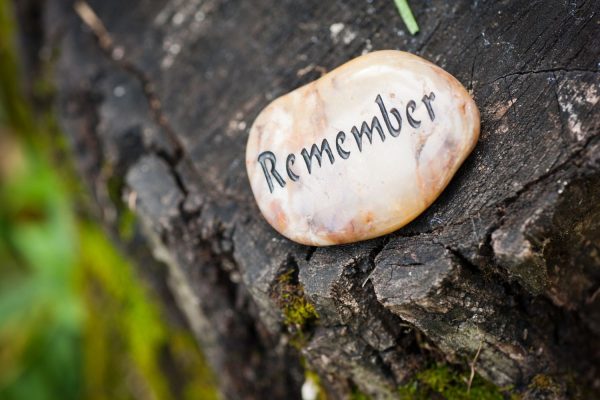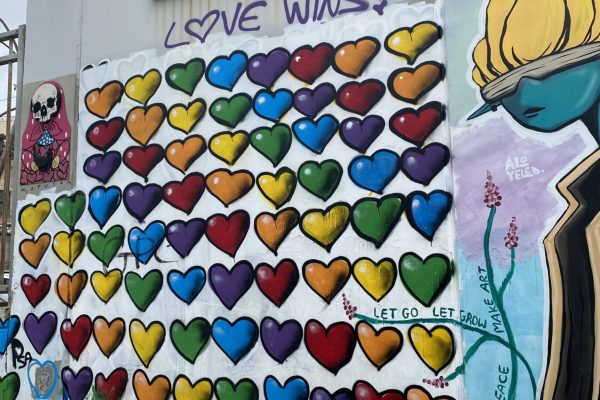This year, when celebrating Passover, many of us will feel as if our own mother/father/sister/brother/grandfather/grandmother/cousin/niece/nephew is held captive in Gaza.
Pesach, for as far as I can remember, was always my favorite holiday. Growing up in southern Israel, I always felt the difference of that time of year, that special scent in the air. The smell of sweet, fresh beginnings, delivered through the air by the trees, who are wearing their brand-new green coats; the carpets of yellow flowers blooming on the side of the roads; roasting nuts, and bubbling honey pots in my savta’s (grandmother) kitchen, preparing sweets I was eagerly waiting to taste again.
Pesach, the holiday of spring, Hag HaAviv. New life budding, emerging from the coldness of winter, became especially meaningful to me two years ago when welcoming our second daughter to our family. It was the additional scent of the pure and precious life I was holding; little fingers and toes playing peek-a-boo between soft linens, reminded me of the spotting Israeli sunlight, reaching out from between the clouds at this time of year. Now living in small town in southwest Texas, so far away from home, and yet, it didn’t feel so bad then, when there was so much to celebrate.
Pesach, the holiday of freedom, Hag HaChirut. As a Mizrachi Jewish woman, my family members fled several Arab nations back in the early 1950s of the last century for the homecoming they waited for. Thanks to them, I was able to graduate high school, serve in the Israeli Defense Forces, pursue higher education and choose my career, where to live, when to marry and who: This freedom is not taken for granted. My matriarchs could only dream of this kind of freedom. Alas, this freedom and the possibility of new beginnings — of new life— is now standing in immense contrast to the reality we have faced since Oct. 7. Our lives stopped somewhere at the end of Z’man Simchatenu (“the time of our joy,” also known as Sukkot) and the beginning of Simchat Torah. Right at the climax of the New Jewish year, our celebration was brutally interrupted with horrors this world hasn’t seen or imagined possible. Yet they have happened, and we are not yet done weeping.
Since Oct. 7, time has a different flow, and though it moves us forward, I know that I, along with many others in Israel and around the world, still feel stuck. How can I celebrate our freedom when we have 134 hostages underground, held in nightmare conditions for five months? How can I celebrate a holiday of freedom and spring, when every day begins with a message of a fallen soldier? How do I celebrate, with all these emotions, all the worries, especially at Pesach and all its promise?
And yet, Jews are commanded to continue; we are commanded to live, we are commanded to celebrate, all through the bitterness and pain (Ketubot 17a). I believe it is the reason the Jewish people is indestructible: We have such a yearning for life, such a love for the living, that we cannot be defeated. And yet again, can I fully immerse myself in the holiday experience?
For those grappling with this question, I certainly don’t have all the answers. Yet, I offer these updated rituals that you might find helpful as you prepare your own Pesach Seder. If my traditions are not aligned with yours, I invite you to think beyond them and open yourself to new ways of honoring our traditions, while also considering current events. After all, this night is different than all other nights, and this year is different than any other year.
Every year, my parents would take me and my siblings shopping for new white clothes for Pesach. I continue this tradition with my family, buying new white clothes to wear for the Seder. This year, how could I wear new white clothes, when 134 of my fellow Israelis are still in their bloodied clothes? Some of them are still in their pajamas, some are barefoot. Indulging in this tradition feels wrong. Instead, we will wear yellow, the color associated with the hostages and the fight for their return. As we tell the story of the liberation of our ancestors, the yellow on our clothing will remind us of the ones who are not yet free, the ones whose freedom was taken and for whom we are fighting to bring back.
Every year, we dip our parsley in saltwater symbolizing the tears of our ancestors, back in bondage. My ancestor’s pain never felt as far away from me as it feels now, when families all across Israel are missing their loved ones, either murdered or fallen, or still being held captive. This year, I will dip my parsley again and again, for the tears of all the mothers and all fathers mourning their lost children, for the tears of all the widowed, for the tears of all the orphans. I will dip my parsley again for the tears of the tortured, for the tears of the captives.
Every year, as many of us do, I dip my finger in the wine, omitting 10 drops for the plagues. This year, I will add another drop, omit from my cup the day of Oct. 7. Though not written in the Exodus story, that day felt darker than the plague of Darkness over Egypt, and the bloodshed felt greater than the plague of the First Born.
Every year, as in many other homes, I will leave a glass of wine for Eliyahu and a glass of water for Miryam. This year, I will add a full dining set at the table, saving a spot for one of the captives. I will print the list of their names and have them on the chair, right there with us. I will fill their cups with wine and water, wishing for them to get the nourishment they need to survive.
My hope, aside from the return of the hostages and the end of this war in a way that will bring peace and security back to the people of Israel, is that you will find these ways of celebrating Passover meaningful to you as well. L’Shanah Haba’ah B’Yerushalayim — Next year in Jerusalem.












One Response
This was a beautifully written article and resonates with so many people. I plan to share this with my community tomorrow and I hope they will take the tools you have written with them to their seders.
L’Shana Haba’ah B’Yerushalayim